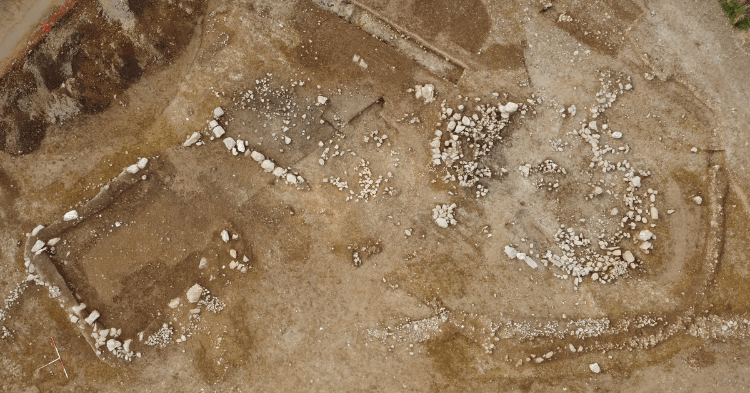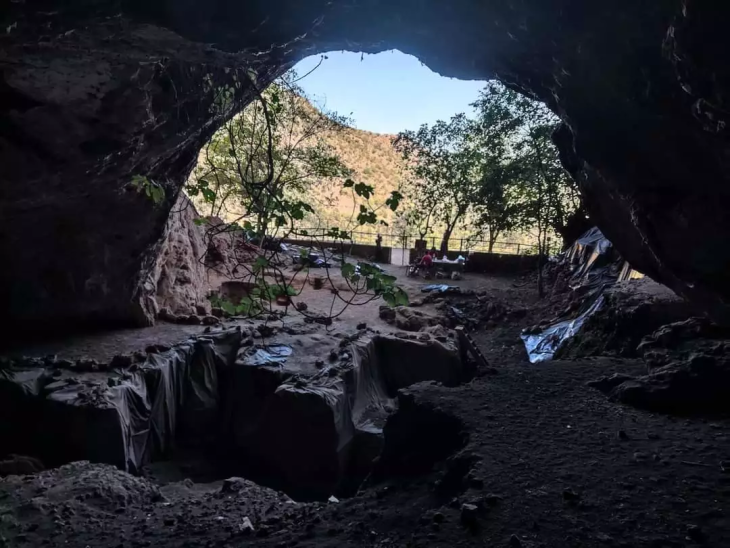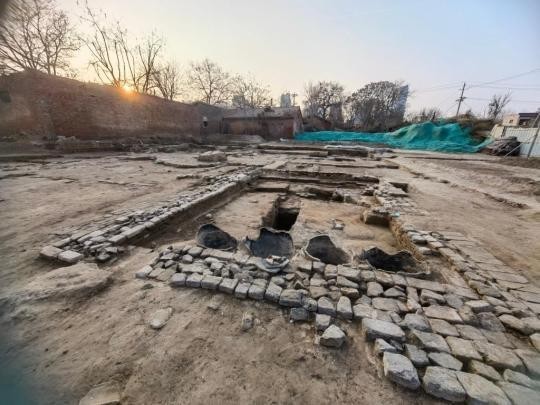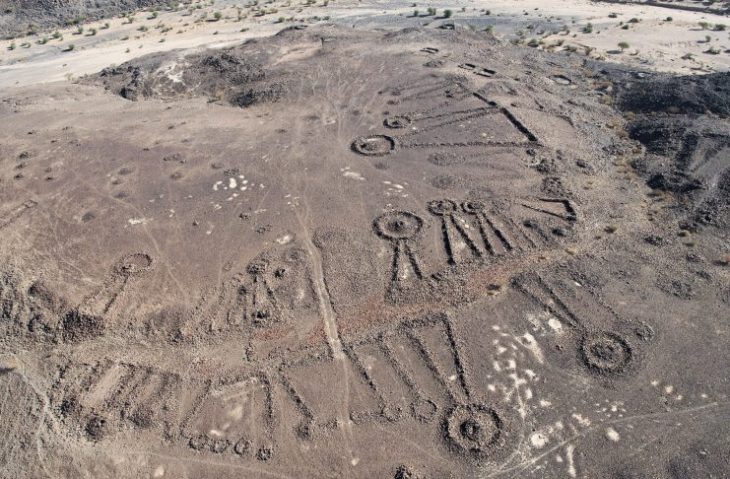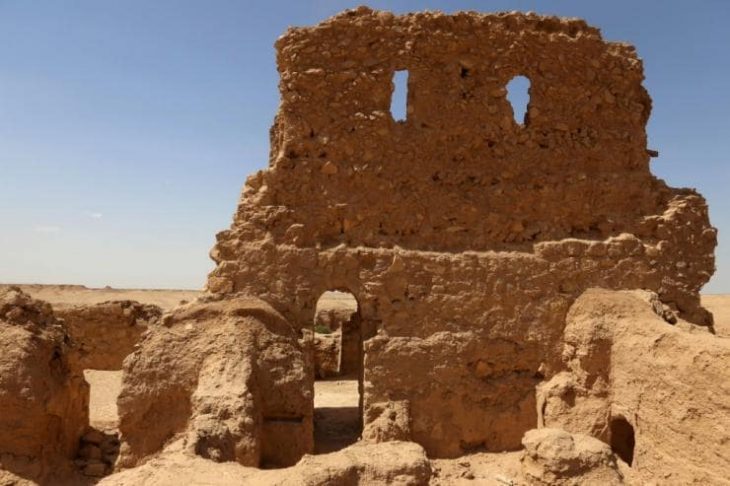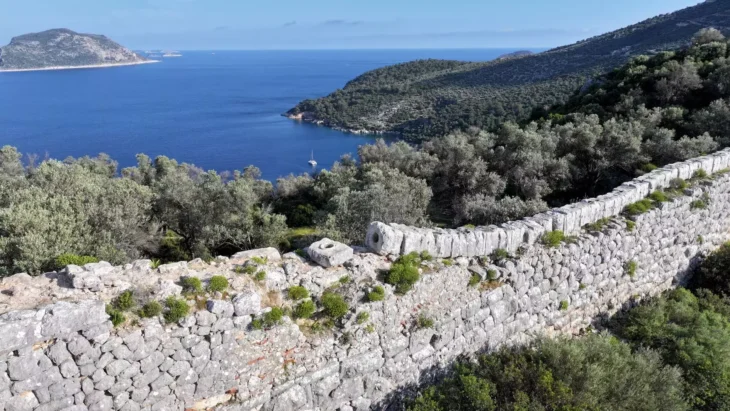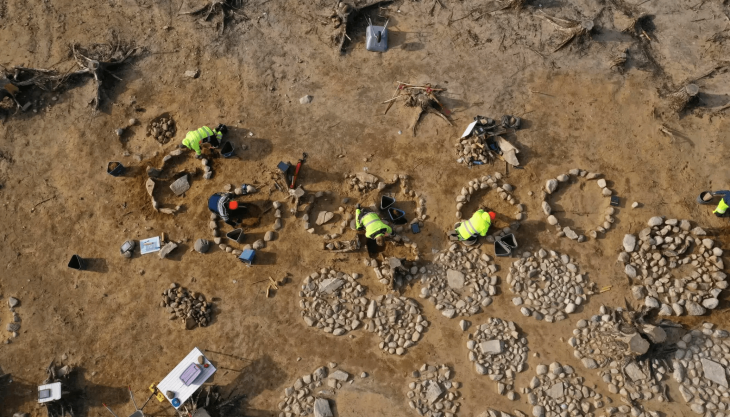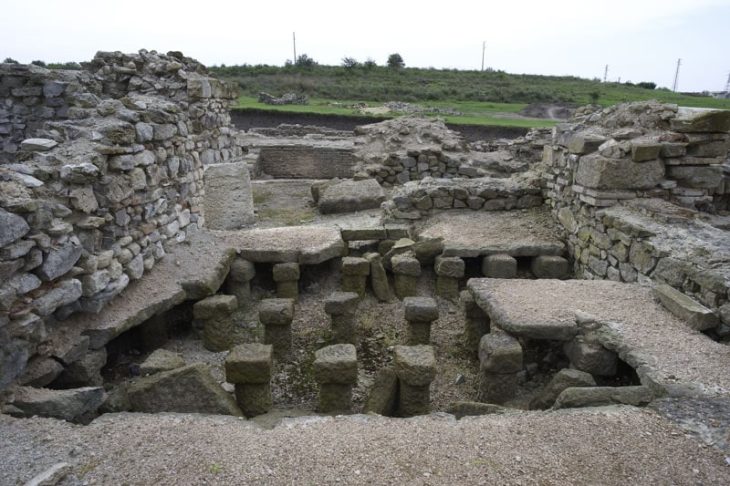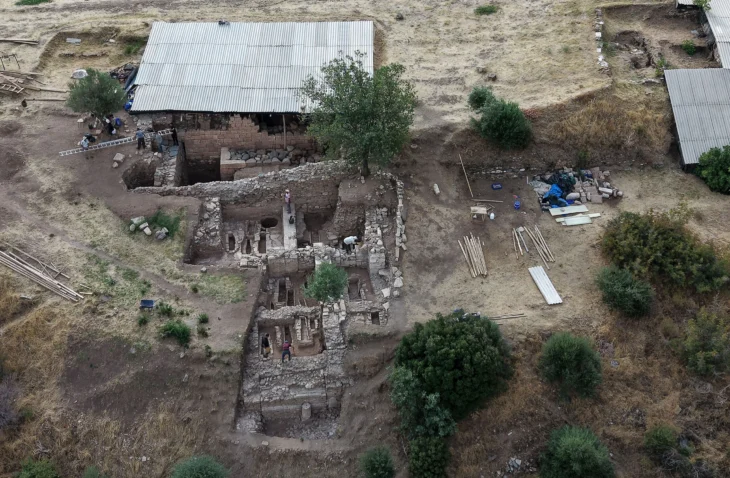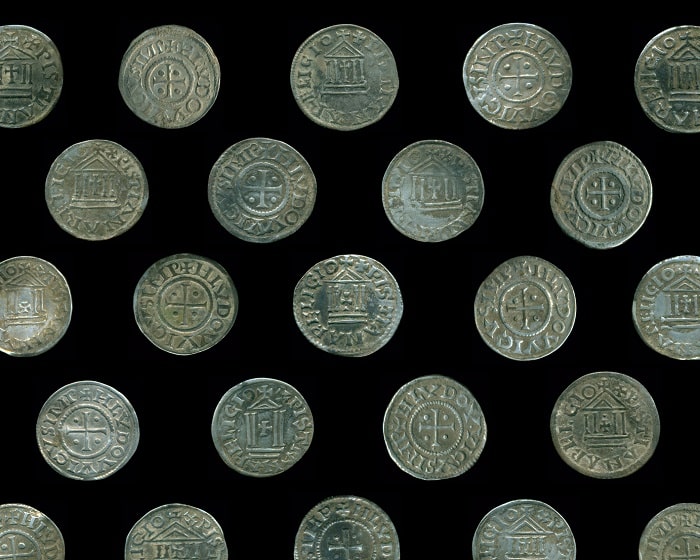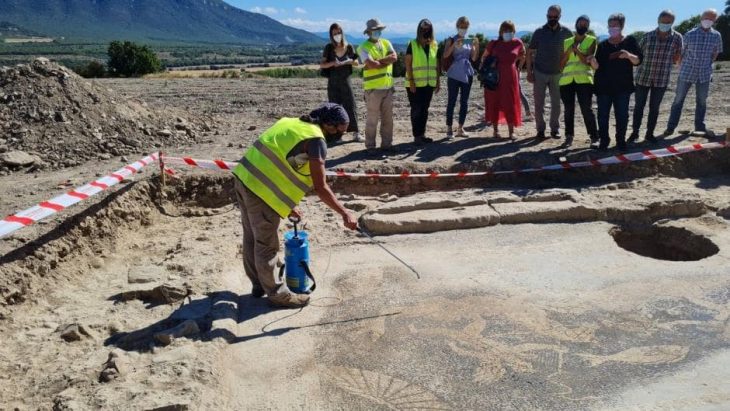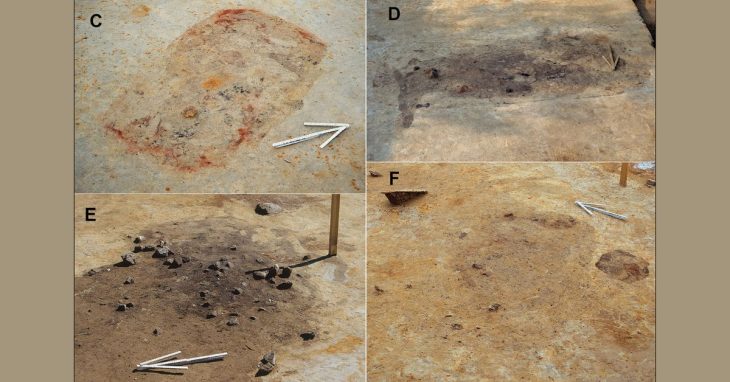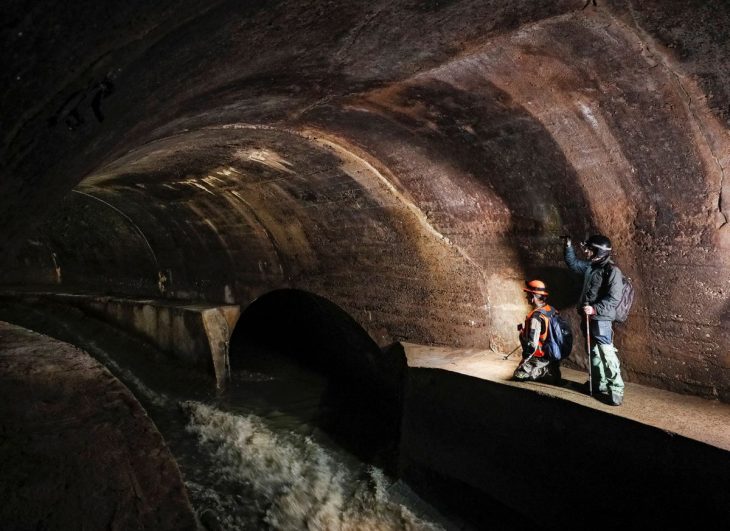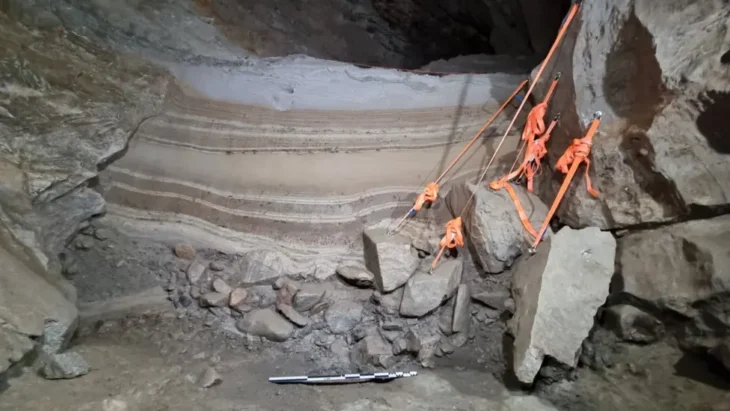Archaeologists from the Cornwall Archaeological have uncovered ancient dwellings from the Bronze Age and a Roman period settlement in Newquay, England.
The discovery was made at the site of a new housing development in Newquay.
The excavations team found three Bronze Age roundhouses and a Roman-period settlement – consisting of an oval house, a large processing area (thought to be used for cereals), and two rectangular buildings (probably former barns).
The discovered dwellings, on the site of a new housing development in Newquay, include large quantities of Bronze Age Trevisker ware pottery, Roman-period imported pottery, and worked stone tools from both periods.
According to the researchers, Bronze Age structures have been found at various sites across Cornwall over the past 30 years, however, the discovery of a cluster of roundhouses in such a small area is still a rare find.
📣 Our WhatsApp channel is now LIVE! Stay up-to-date with the latest news and updates, just click here to follow us on WhatsApp and never miss a thing!!
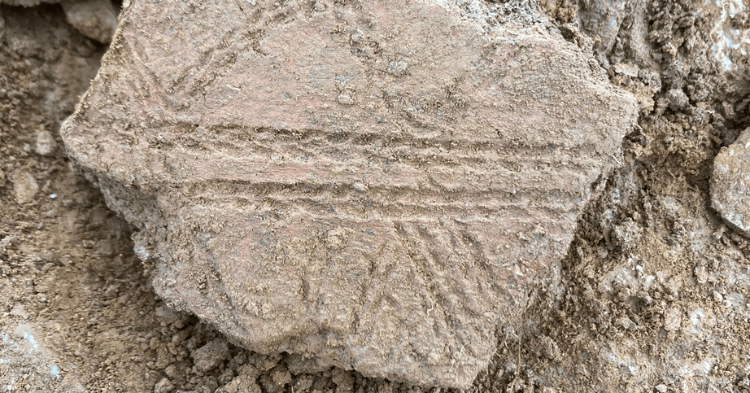
Sean Taylor, Senior Archaeologist at the Cornwall Archaeological Unit, said: “Although quite a few of these Bronze Age structures have been found at various sites around the county over the last 30 or so years starting with Trethellan at Newquay in 1987, it’s still rare to find so much in one small area.
“The Roman house is similar to buildings found at Trethurgy Round near St Austell in the 1970s and are of a type unique to Cornwall. The rectangular agricultural buildings on the other hand are fairly common throughout Roman Britain but this is the first time that they have been discovered in Cornwall.
“It’s starting to look like this part of Newquay, alongside the River Gannel, was a very important and densely populated area from the Neolithic (c 4000BC) onwards. The estuary undoubtedly formed an important link with the outside world throughout prehistory.”
The Cornwall Archaeological Unit completed their work at the end of March. The site will now be handed over to the developer, Treveth.
Many of the finds, which include large quantities of Bronze Age Trevisker ware pottery, Roman-period imported pottery, and worked stone tools from both periods, are expected to be housed in a local museum.

